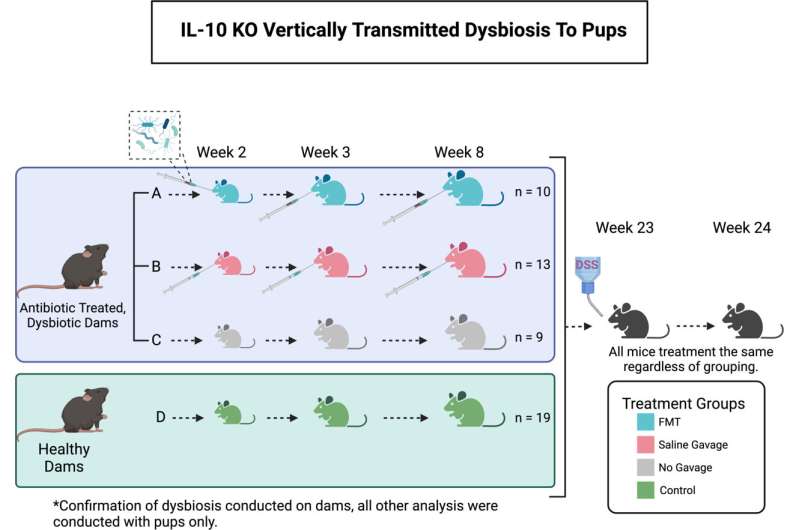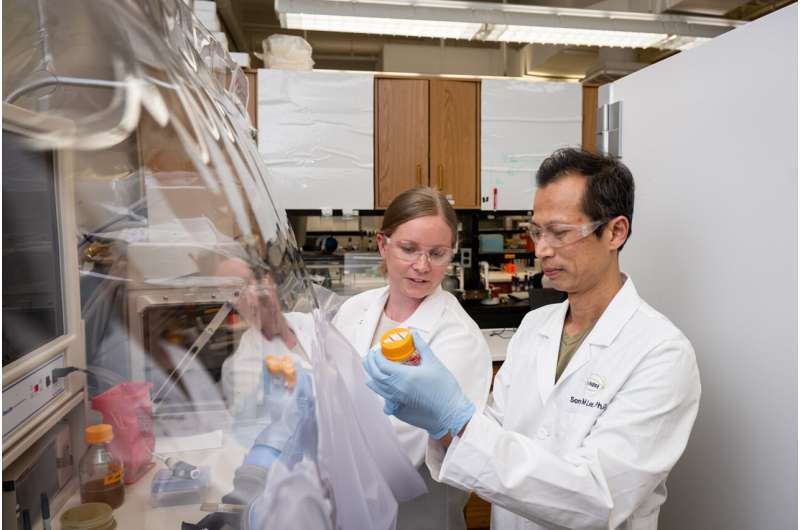This article has been reviewed according to Science X's editorial process and policies. Editors have highlighted the following attributes while ensuring the content's credibility:
fact-checked
trusted source
proofread
Researchers explore links between gut microbes and effective colon cancer care

Colorectal cancer is the third most common cancer worldwide, according to the World Health Organization, and a Kansas State University graduate student is doing research to identify and improve effective colon cancer care.
Many cancer drugs are known to interact with the microbes that inhabit the human gut. Each person's microbes are unique to them—almost like a fingerprint composed of healthy microbes and disease-associated microbes. This diversity of microbes can cause challenges; microbial interactions with treatment drugs can lead to adverse reactions or drug inefficiencies.
Customizing a colon cancer care plan based on these and other factors is known as personalized medicine, and it provides the best possible chance of winning the battle with cancer. This is why scientists like Tanner Richie, K-State doctoral student in biology, Salina, work diligently to improve personalized medicine by identifying all the factors that influence colon cancer outcomes. Richie is first author of an article titled, "Limitation of amino acid availability by bacterial populations during enhanced colitis in IBD mouse model," published in mSystems.
Measuring microbial changes in the gut can help identify chronic inflammatory diseases that may lead to colon cancers. Richie's thesis project, "Maintaining balance in the microverse: Investigating microbial impacts on host gut inflammation," examines how the many different types of intestinal microbes interact with each other and with the human body.

For years, scientists have known that these microbes can make us sick, keep us healthy or appear to do nothing at all. Richie's work suggests that certain gut microbes influence the likelihood of someone getting colon cancer and explores how the microbes are driving colon inflammation and outcompeting healthy microbes.
"Continuing this research into how microbes can lead to colon inflammation and compete with us for resources is really exciting and will help people with colon cancers by personalizing their medicine," Richie said.
She has contributed to three other scientific publications, and she is also the author of "Precision prescribing for colon cancer based on gut microbes," a general audience article published by the National Association of Science Writers.
More information: Tanner G. Richie et al, Limitation of amino acid availability by bacterial populations during enhanced colitis in IBD mouse model, mSystems (2023). DOI: 10.1128/msystems.00703-23



















